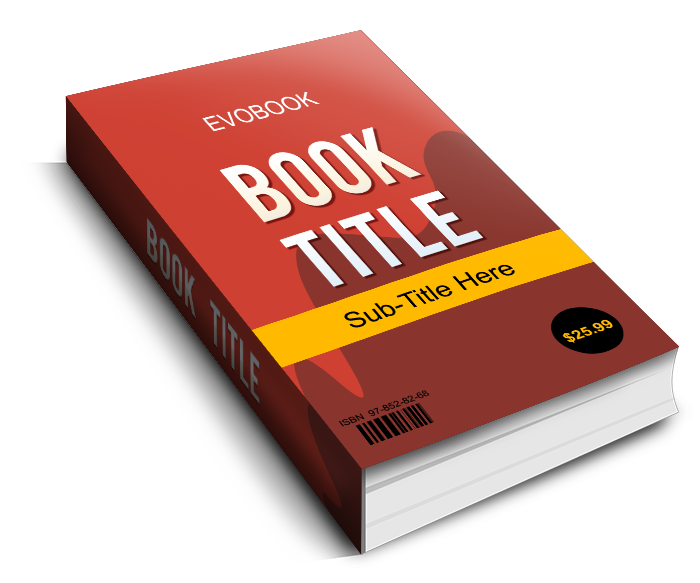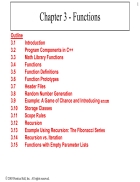




Mã tài liệu: 250433
Số trang: 78
Định dạng: pdf
Dung lượng file: 266 Kb
Chuyên mục: Kỹ thuật - Công nghệ
Chapter 1 – Introduction to C++
Programming
Outline
1. History of C and C++
2. C++ Standard Library
3. Basics of a Typical C++ Environment
4. Introduction to C++ Programming
5. A Simple Program: Printing a Line of Text
6. Another Simple Program: Adding Two Integers
7. Arithmetic
8. Decision Making: Equality and Relational Operators
9. Introduction to Object Technology 2003 Prentice Hall, Inc. All rights reserved.
2
History of C and C++
ã History of C
– Evolved from two other programming languages
ã BCPL and B
– “Typeless” languages
– Dennis Ritchie (Bell Laboratories)
ã Added data typing, other features
– Development language of UNIX
– Hardware independent
ã Portable programs
– 1989: ANSI standard
– 1990: ANSI and ISO standard published
ã ANSI/ISO 9899: 1990 2003 Prentice Hall, Inc. All rights reserved.
3
History of C and C++
ã History of C++
– Extension of C
– Early 1980s: Bjarne Stroustrup (Bell Laboratories)
– “Spruces up” C
– Provides capabilities for object-oriented programming
ã Objects: reusable software components
– Model items in real world
ã Object-oriented programs
– Easy to understand, correct and modify
– Hybrid language
ã C-like style
ã Object-oriented style
ãBoth 2003 Prentice Hall, Inc. All rights reserved.
4
C++ Standard Library
ãC++ programs
– Built from pieces called classes and functions
ã C++ standard library
– Rich collections of existing classes and functions
ã “Building block approach” to creating programs
– “Software reuse” 2003 Prentice Hall, Inc. All rights reserved.
5
Basics of a Typical C++ Environment
ã C++ systems
– Program-development environment
– Language
– C++ Standard Library 2003 Prentice Hall, Inc. All rights reserved.
6
Basics of a Typical C++ Environment
Phases of C++ Programs:
1. Edit
2. Preprocess
3. Compile
4. Link
5. Load
6. Execute
Loader
Primary
Memory
Program is created in
the editor and stored
on disk.
Preprocessor program
processes the code.
Loader puts program
in memory.
CPU takes each
instruction and
executes it, possibly
storing new data
values as the program
executes.
Compiler
Compiler creates
object code and stores
it on disk.
Linker links the object
code with the libraries,
creates a.out
Những tài liệu gần giống với tài liệu bạn đang xem
Những tài liệu bạn đã xem
 5tiểu luận công nghệ thông tin
Chapter 1 – Introduction to C++ Programming Outline 1. History of C and C++ 2. C++ Standard Library 3. Basics of a Typical C++ Environment 4. Introduction to C++ Programming 5. A Simple Program: Printing a Line of Text 6. Another Simple Program:
pdf Đăng bởi
anh_trang_xanh2011
5tiểu luận công nghệ thông tin
Chapter 1 – Introduction to C++ Programming Outline 1. History of C and C++ 2. C++ Standard Library 3. Basics of a Typical C++ Environment 4. Introduction to C++ Programming 5. A Simple Program: Printing a Line of Text 6. Another Simple Program:
pdf Đăng bởi
anh_trang_xanh2011